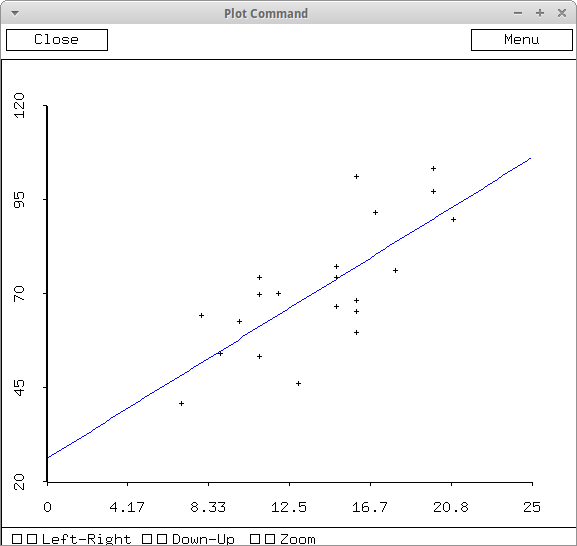- Got this comic this just a moment ago -- and thought it too good
not to share:

Maybe we can do calculus and figure out how to govern ourselves! Don't forget calculus just yet....
- There's a breakfast sponsored by the math/stat club, Thursday (tomorrow!) morning, 8:30-10, MEP 4th floor, West Atrium (outside of my office!). Please join us for pancakes.
- Reminder: turn off your rectangles.
- No quiz this Friday, but you should have reviewed 1.1-1.3 by then.
- Your diagnostic test results are in. You have
- your form (and, at the top, the "number correct" out of 25),
- the correct answers (BBCABDAEBEDECEDACCCEAEDED),
- and the test, available here.
Now what do we do with the result of this diagnostic test? Compute your percentage, then reference these data (which come from the University of Kentucky: Elementary Calculus at UK: 2423 Students over Four Semesters (2002-2004)).

You might look back over the test, and see if you can identify a trend in the problems you missed. Are there things that you need to work on in order to do well in calculus?
A couple of issues:
- Time may have been a factor for some.
- Some of you are just rusty, and can knock the rust off quickly.
- Some of you might have just been nervous.
If you didn't perform well, you might want to take the Diagnostic tests in your text (p. xxiv) to see if you can get a better handle on where you're weak.
You might also make plans to spend plenty of time in the Calculus lab (MEP 457).
- You have a reading assignment for next time: please read section 1.3 (I assume that you've already read 1.1-1.2). Again, this is considered review by the department.
- What is a function (p. 10)?
- Why do we care about them?
We use functions to represent or to model behavior. For example,
- There is a straight line (linear) relationship between celsius and fahrenheit:
$f(c)=\frac{9}{5}c+32$
or
$c(f)=(f-32)\frac{5}{9}$
(depending on whether you're Canadian or American!:)
- Here's the regression equation (a linear model) for the KEMTP tests from the last time I ran mat128:
$g(K)=1.94K + 48.3$
shown in blue in the following graphic, along with the actual results for the corresponding scores from the KEMTP test:

- There is a straight line (linear) relationship between celsius and fahrenheit:
- Linear functions are the most important functions we use, members
of the polynomial family. Let's see how we can use them to
solve an important problem that you must recall from high school or other times in your mathematical life:
How do you find the "right" graph window for a given function, $f(x)$? Here's an example, which leads to a couple of other important problems:
- How do we find a function's roots (places where $f(x)=0$)?
- How do we find places where a function hits high and low points -- "peaks and pits"?
In particular, Sir Isaac Newton, one creator of calculus, used linear functions to solve this problem.
How can we use linear functions to find roots of $f(x)$??